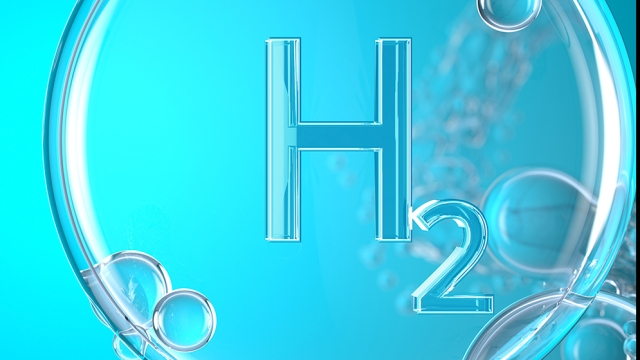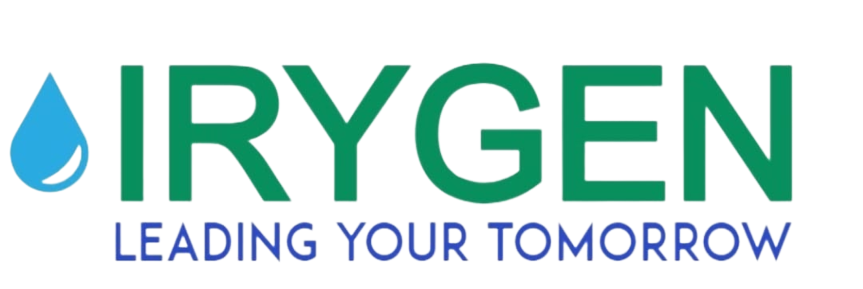
The importance of clean water, a foundation for green hydrogen energy production
As the global economy starts fully integrating other sources of energy in addition to fossil fuel, solar and wind, green hydrogen is starting to gain momentum.
Global leaders across industry and governmental agencies are developing aspiring and potentially paradigm shifting ways to produce lower carbon energy fuels such as hydrogen.
In the interim, other companies are evaluating how hydrogen can fit into their business operations in the near and mid-term into the future.
With this renewed focus to increase hydrogen production on a large scale basis, we have to remember the importance of clean, pure water in this process to achieve its full potential.
What is hydrogen?
Hydrogen is one of the lightest, most abundant chemical elements on the earth. It is available in vast numbers of living molecules including plants, animals, and humans as well as the water that we use.
However, it is rarely found in the form of a gas, which is the form that is required to harness its potential to power and fuel our homes, businesses and logistics infrastructure across the world.
How is hydrogen produced?
Hydrogen is produced through two separate processes, known as green hydrogen and blue hydrogen.
Blue hydrogen essentially is produced through non-renewable sources. It typically utilizes a process called steam methane reformation. This method uses a vessel to react high temperature steam, a typical catalyst and methane gas to generate hydrogen. However, blue hydrogen production is a carbon intensive process generating large quantities of carbon monoxide.
Green hydrogen can be produced through renewable energy sources. In this process, water is subjected to an electrolysis process in which the water molecule separates into hydrogen and oxygen.
Some of the additional benefits to this method of hydrogen production include the byproducts of its combustion namely, oxygen and water vapor.
An additional benefit includes utilizing the excess electricity generated from alternative energy sources such as wind or solar channeled to the electrolysis process. In doing this, hydrogen gas is generated that can be stored for energy production at times when these sources are not capable of producing electricity.
The critical importance of water sourcing in hydrogen energy production operations
Clean, pure water is vital for hydrogen energy/fuel production. Approximately, 5 metric tons (1321 US gallons) of water a day is needed for every megawatt of power produced by an electrolysis unit.
Obtaining this quantity of water is not as easy as turning on the faucet, even though in many industrialized nations it may seen that way.
We shall not assume that fresh water will always be available for power generation purposes. However, the cost and complexity of providingclean, demineralized water is very dependent on the source water quality whether it comes from seawater, tertiary wastewater, surface or groundwater.
Water treatment infrastructure can be 11% or more of a hydrogen production facilities costs, and coupled with water scarcity issues that can limit the availability of water resources would reduce the economic feasibility of this facility.
Therefore, a detailed analysis ensures you will choose the correct water source for your unique hydrogen power generation plant requirements.
Solving your challenges to obtain clean, pure water is essential to green hydrogen production and companies like IRYGEN are skilled in assisting you with these source water treatment challenges to enable a smooth hydrogen production operation.
Overcoming the water challenges of green hydrogen energy
For example, a green hydrogen electrolysis unit with a capacity of 100 MW typically requires about (132,000 US gal) 500 tons of clean pure water per day and produces approximately about 50 tons per day of hydrogen. If the system uses water cooling, the water needed would be twice this quantity.
Therefore, a large hydrogen energy production facility, with a capacity of about 30,000 MW of power, will require an anticipated (39.6 US MGD) 150,000 tons per day of clean, pure water. This is typically the water supply requirements of a city with a population between 450,000 to 950,000 people.
Due to the sheer volume of water required, seawater, deep well brackish or even tertiary treated wastewater can be used to provide the water volume necessary.
For these water sources mentioned above, specific treatment technologies including natural flocculation, reverse osmosis desalination, post treatment filtration and disinfection can be required based on the type of electrolysis units to be utilized.
What are the critical water decisions to be calculated in green hydrogen energy production
Water availability is a critical factor for any hydrogen energy production facility, however, there are several other parameters to consider. Therefore, its important to evaluate the pros and cons early in the design process of the water source and its required treatment for the electrolysis units.
Additional items to consider, would potentially include heat integration, redundancy, peak demand flows, and hydrogen storage as well as byproduct oxygen storage.
Lastly, when planning facility design environmental considerations including local weather at the potential plant could play a role. This would include seasonal water temperature changes, water salinity, and other potential weather related impacts on the treatment process.
Clean water solutions for sustainable hydrogen production
It is anticipated that utilizing a desalination process with pre and post treatment would only add less than 0.2% of the minimum energy required to produce the hydrogen by electrolysis, and the energy cost would add an estimated $0.011 to the price of hydrogen per kg.
Consequently, these numbers suggest that a properly treated water supply will not be the limitation for hydrogen production utilizing electrolysis units. We will look to partners in industry to provide the continuous technological improvements for the energy efficiency of the hydrogen producing electrolysis units to further scale up production to stake its claim to meet the global energy needs.
IRYGEN is at the forefront of innovation, collaborating with local qualified and experienced contractors, civil engineering consulting firms and local channel partners and affiliates to meet the needs of companies and communities in the US and around the world to provide sustainable and advanced clean water solutions for green hydrogen power generation.
Want to learn more about how IRYGEN can assist you with your clean water treatment challenges for your green hydrogen power production requirements? Contact the water & wastewater treatment experts at IRYGEN.
Post a comment Cancel reply
Related Posts
Decentralized Wastewater Treatment – A case study using GWT Zeoturb bio-organic flocculant
Are you looking for an effective and innovative decentralized wastewater treatment solution for your commercial/industrial…
The importance of clean water, a foundation for green hydrogen energy production
The importance of clean water, a foundation for green hydrogen energy production As the global…

